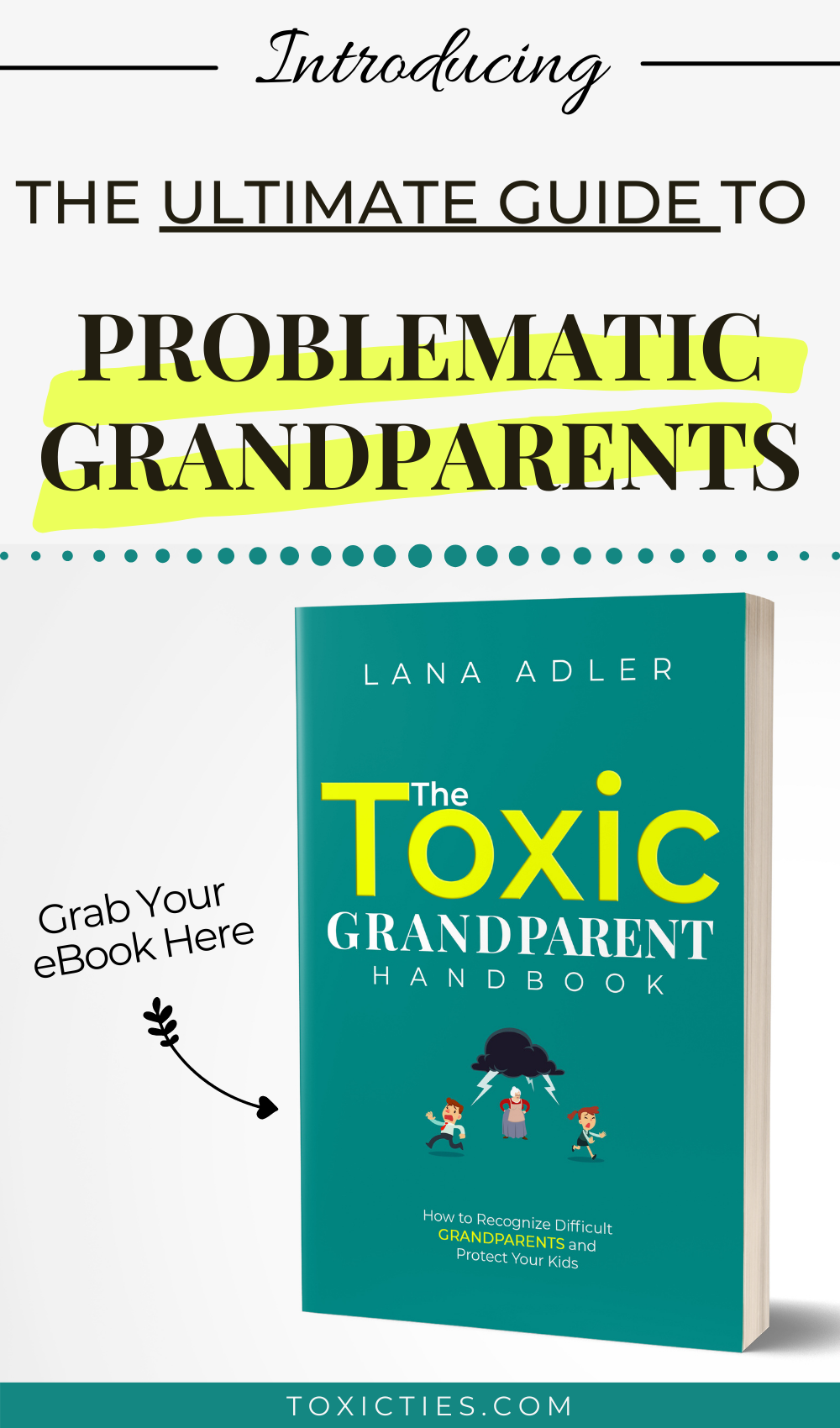Do you have to deal with a difficult parent that robs you of your sanity?
It could be your biological parent, a stepparent, or, perhaps, a toxic in-law, but the effect they have on you is the same: hurt, confusion, disappointment, anger, and desire to withdraw.
This article will discuss how to deal with difficult parents, and when to let go.
1. Put Things in Perspective
“The most loving parents and relatives commit murder with smiles on their faces. They force us to destroy the person we really are: a subtle kind of murder.” ― Jim Morrison
Even the most loving parents damage their children with the best intentions – to protect them, to guide them, to better them. In most cases, they do it by imprinting their own fears and prejudices on them.
The point is, parents are just people.
They have flaws, struggles, and impaired judgment. They have both emotional and intellectual handicaps. Regardless of their parental role, they are afflicted by personal blockages and limitations.
But most of all, they are people who make mistakes, and who are terrified of being judged by their children.
Learn to see your difficult parent as just human. Learn to see their emotional immaturity as a type of disability.

2. Keep Expectations Low
In many ways, the effect a difficult parent has on you is fueled by your feelings of injustice (being wronged) and the belief that things could be (or should be) different.
In other words, your expectations dictate how you feel.
You need to let go of your expectations and accept your parent(s) for who they are.
You can’t expect someone with, say, a narcissistic personality disorder, to act with empathy and kindness. No more than you can expect a scorpion not to sting.
Difficult parents are waaaaay easier to deal with when you accept that they won’t change. So don’t expect more than they are capable of, and you won’t be disappointed or hurt.
3. Don’t Fall Into the Guilt Trap
Difficult parents love making you feel like you’ve hurt them. Or, in a different scenario, you’re a bad person if you don’t do something they ask.
Don’t fall for it. If they’re setting a guilt trap, calmly tell them that you don’t appreciate being emotionally manipulated, and that you won’t tolerate it anymore. Manipulators don’t like being called out on their dirty tricks.
If they continue to harass you, reiterate that you can’t do what they’re asking you to do this time, and you need them to respect that.
The trick is agreeing with everything they’re saying (how can they argue when you agree with them?) and re-stating your decision over and over again.

4. Let Go of the Need for Your Parent’s Approval
Every child needs and wants their parents’ approval. It’s normal to want it, and it’s normal to receive it.
But some children have to accept the fact that this isn’t going to happen. For whatever reason, their parent(s) chose to withhold their approval.
Some difficult parents do it as a form of punishment. Others hope to influence you in the “right” direction.
And then there are those who disapprove because they don’t support or even love their child. It does happen! Some toxic or sociopathic individuals don’t love their children.
It’s probably not your case though. Most likely, your difficult parent loves you, but they have a very warped idea of what parental love is.
In their misguided quest to make you into a version of themselves, they missed the chance to get to know you and learn what a wonderful person you are.
It’s their loss.
When you realize it and let go of the need for their approval, you’ll be able to start living your life in a whole new way.
Related: 21 Gut-Wrenching Lies You Learned From Your Narcissistic Parent
5. Be Direct and Assertive When Confronting a Difficult Parent
When confronting a difficult parent, be direct and calm without expecting a specific response. That’s the part you can’t control.
The part that is up to you is letting your thoughts and feelings known, which is empowering.
Stick to the facts and use “I” statements (i.e., “I feel like my words don’t matter to you when you constantly interrupt me” or “I feel scared and misunderstood when you yell at me”).
Remember that manipulative parents are not known for their empathy. They will try to confuse you, go on the offensive, or assume the role of a victim.
Don’t let them bully you into submission by invoking guilt or pity. State your case in a calm and polite manner, and stay cool regardless of their response.
Your goal is to be honest about your feelings and to make it clear that you won’t tolerate certain behaviors.
6. Set Boundaries and Expectations
If you have a toxic parent, they probably display many abusive behaviors toward you. They may berate and criticize you every chance they get. They may compare you unfavorably to your siblings or other people. Whatever it is, it’s cruel and you want them to stop.
So you can try something called a “connection contract.” This is a method Dr. Craig Malkin recommends for dealing with narcissistic family members.
Say, your toxic parent invites you for dinner. You say: I’d really like to come, but if I hear yelling (cursing, heavy drinking, insults, etc.), I will not be able to stay. So it’s really up to you if I come to dinner and spend time with you.
Be very clear and specific about the behaviors you won’t tolerate.
When you put it this way, you’re setting limits and expectations for acceptable behavior. You’re also putting the responsibility on them to hold up their end of the bargain. If they fail and you leave, it’s on them.
7. Consider Forgoing the Relationship That’s Too Harmful
“An unhappy alternative is before you, Elizabeth. From this day you must be a stranger to one of your parents. Your mother will never see you again if you do not marry Mr. Collins, and I will never see you again if you do.” ― Jane Austen, “Pride and Prejudice”
A parent isn’t someone you can easily cut out of your life. But if all else fails and your difficult parent continues to cause you psychological harm, consider forgoing a relationship altogether, at least for the foreseeable future.
In some cases it’s the only logical recourse. Here are some of the signs that you need distance. Your parent is
- fundamentally incapable of showing love and support
- unable to see the error of their ways after numerous attempts to communicate how their behavior or words affect you
- consistently dismissive, demeaning or critical
- physically or sexually abusive
- manipulative in a habitual manner
- punishing and cruel whenever you disobey
- disrespectful of your boundaries
- using threats and intimidation to get what they want.
That type of parent is a destructive force that will continue to tear you down until you put a stop to it.
It’s not an easy feat: the parent-child bond is hardwired into our brains, which means children get attached to even the most awful parents.
But consider the cost of having that toxic relationship in your life — stress, anxiety, depression, internalized feelings of inadequacy, failed personal relationships, not to mention thousands of dollars worth of therapy.
Maybe one day they will change. Right after Jesus descends unto Earth in a golden chariot, riding a couple of unicorns. Anything’s possible.
But until then, consider all options, including cutting them loose.
NEXT
7 Signs Your Kids Have a Narcissistic Grandmother
How to Forgive Your Parents for Abuse (When They’re Not Sorry)
How to Deal with a Toxic Relative Who Comes By Unannounced









Useful, up until the CIMPLETELY unnecessary blasphemy regarding Jesus. It’s difficult and rather unwise to trust the thoughts of a person with a reprobate mind.
Thank you so much for ALL of your blog posts. They helped me today when my parents were equally toxic for a five hour car drive. Thank you so much.